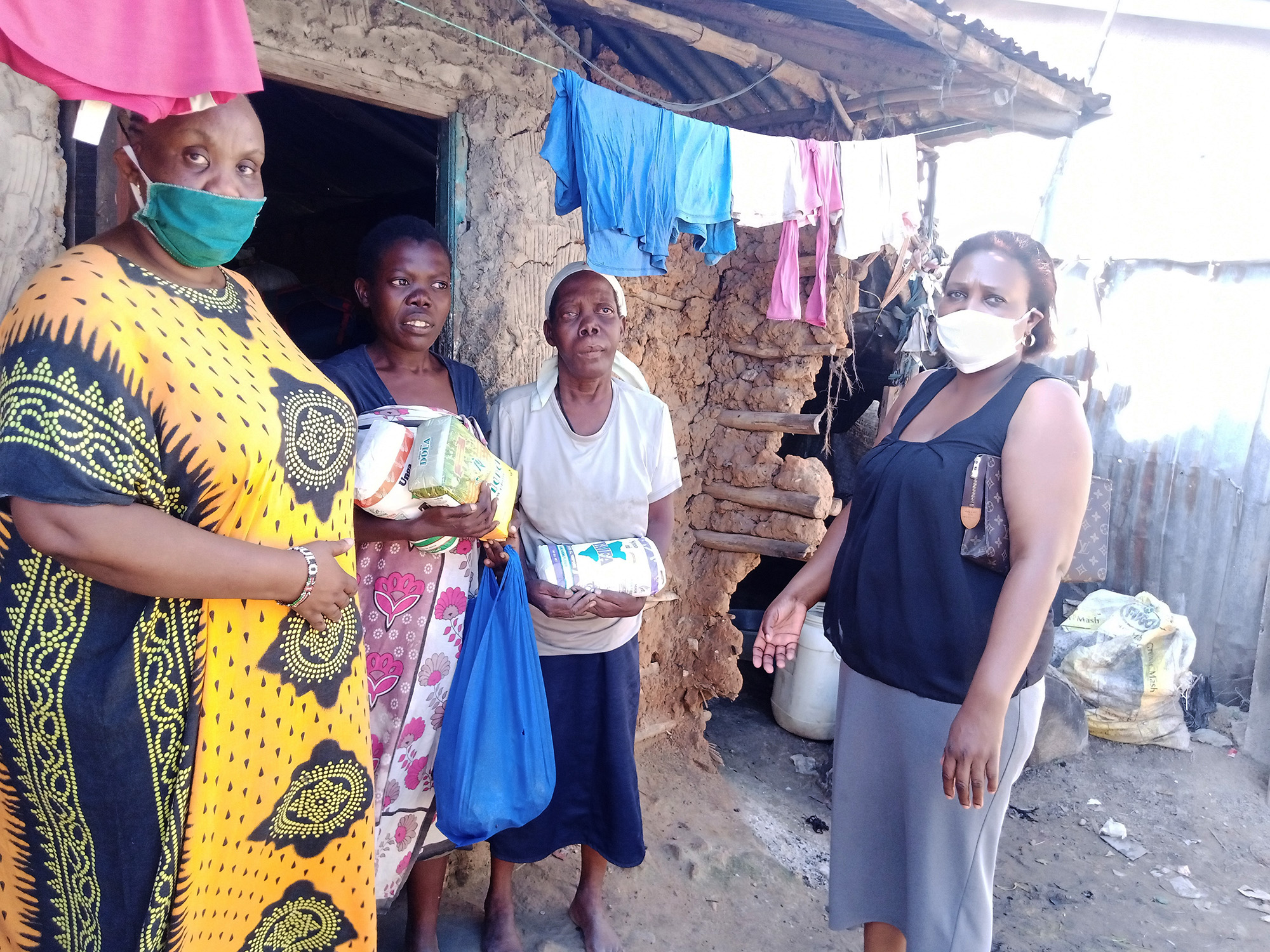
From left, community health volunteer Mary Mwaningo, Jackline, Purity and HOPE Project’s Florah Mwandoe outside Purity’s hut with some of the food donation
When the coronavirus was just beginning to spread, I was given the option of returning home to the United States before travel restrictions would make it impossible. Much to the dismay of my family and friends, I decided to remain in Kenya. I’d like to share one experience which exemplifies why I’m so grateful that I’m still here.
Salim (names have been changed to protect people’s privacy) is one the children we provide educational assistance to as part of my ministry at Helping Orphans Pursue Education (HOPE) Project. We began supporting Salim two years ago when he was in pre-primary school; he is now in the first grade. He is a shy, quiet boy who likes to play outdoors with his friends.
Salim’s father was murdered while his mother, Mildred, was pregnant with him, and Mildred was forced to work to support the family. When Salim was six months old, Mildred tragically passed away due to HIV/AIDS and his blind grandmother Purity, Mildred’s mother, became his caregiver. Salim was born HIV-positive.
Salim and his grandmother live in a small one-room mud house with no running water. Living with them are Purity’s daughter Jackline (Salim’s aunt), Salim’s brother James, and Jackline’s daughter Agnes. Purity’s husband passed away a long time ago when her daughters were young, and she had to raise them alone as a blind woman.
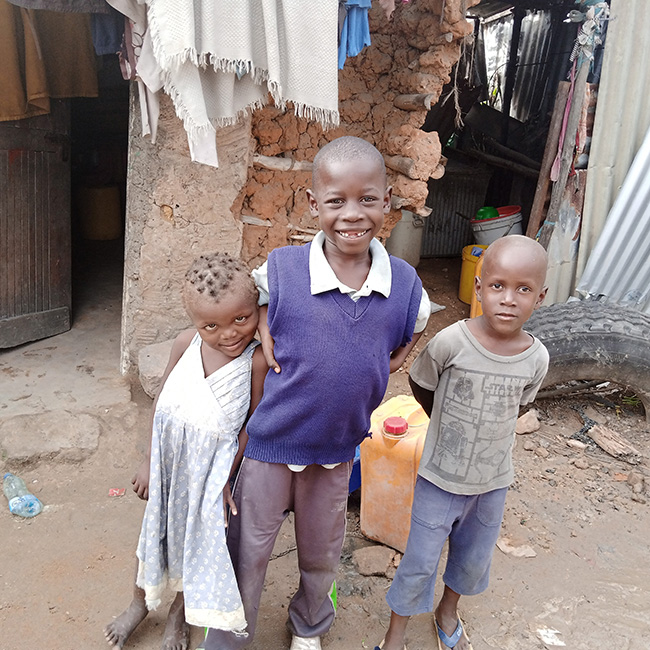
Salim (center) with his cousin Agnes and their friend Charles
Jackline lives with an intellectual disability. Although she is able to help with some chores, she is unable to work to earn money. Tragically, she was raped about four years ago, and her daughter Agnes was conceived as a result. They have never been able to determine who raped her or the circumstances involved. Agnes is now 3 years old.
Salim’s 24-year-old brother James is an alcoholic. Before he was even a teenager, he started hanging around with a bad crowd and began drinking and stealing. He dropped out of school in the sixth grade and has been lost in life ever since. He disappears for weeks at a time, living on the street. He doesn’t work and provides no financial assistance to the family.
The blind grandmother is the foundation of this family and its sole caregiver. Purity has a friendly outgoing personality, is very talkative and also very funny. She is the type of person who lives her life joyfully in the midst of overwhelming difficulties and struggles, which I can only begin to understand.
With no means to earn money, the family is completely dependent on donations to live and eat. They have been able to survive to this point through donations from their church, which gives them the equivalent of less than $20 a month. This is all the money on which this family has to live. They sustain themselves with simple staple foods — ugali (stiff porridge), beans, green vegetables and chapati (flat bread) — which they cook on a small propane grill inside the hut. There is not a lot of food to go around.
Unfortunately, the coronavirus has managed to make things even worse. Due to the lockdown, churches are closed, people are not donating, and as a result, the church has not been able to continue their financial support of the family.
Through the generosity of several donors, we have been able to give food packages to a number of HOPE families like Salim’s. All of these families are struggling to survive and eat during the pandemic.
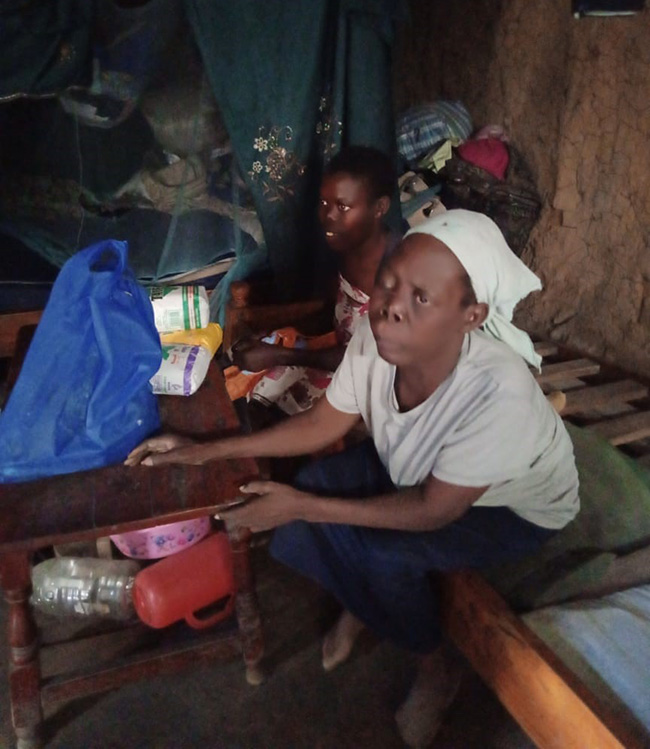
Purity (front) and her daughter Jackline inside their hut.
When we arrived at Salim’s family’s hut to deliver their bag of food, they had not eaten in several days. As Purity is blind, we had to hand her the food items one at a time so that she could feel what they were. With tears in her eyes, she told us that she had given up hope that they would ever get help. She thought they were all going to die. All they were able to scrape up to “eat” in the past three days was a cup of black tea.
As Salim is HIV-positive, he needs to take antiretroviral drugs daily. With no food, Salim was forced to take his drugs on an empty stomach. When they didn’t have food for several days, they had to stop giving Salim his medication altogether.
Purity could not express enough how thankful she was for the food, which has literally saved their lives. She insisted that we enter their hut. There was no sign of food anywhere in sight with the exception of a withered small bunch of kale that someone had given them. They had no propane and no money to buy more, so were unable to cook the kale before it rotted. Needless to say, we also gave them some money to buy fuel for cooking.
Unfortunately, the food we provided for Salim’s family will only last about five days. His family, as well as many others that we serve as part of my HOPE ministry, need ongoing help to meet basic needs as the pandemic continues.
As we stood outside the mud hut with Purity and Jackline holding some of the food that we were able to buy for them, Salim saw the package of milk and asked for some. But Purity told him that they needed to save the milk for chai (tea with milk) and Salim began to cry. We obviously have more work to do.
Mungu ni mwema. God is good.

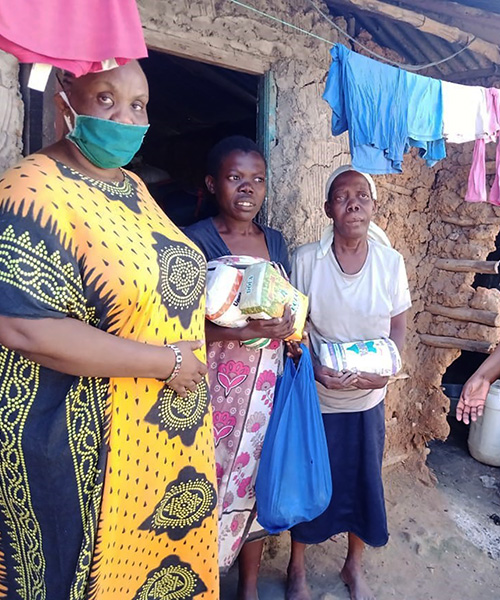

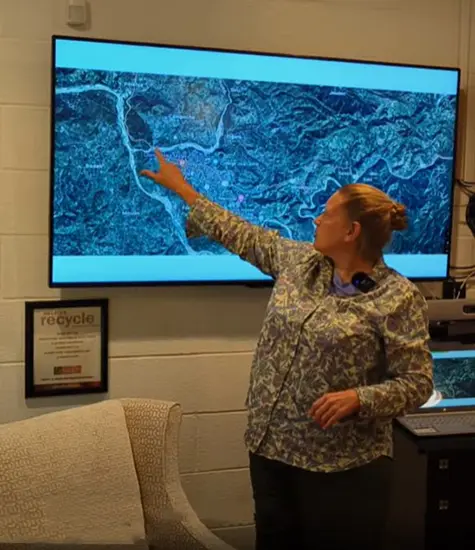
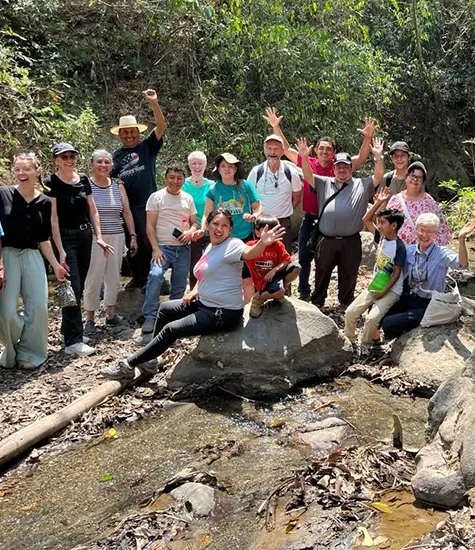
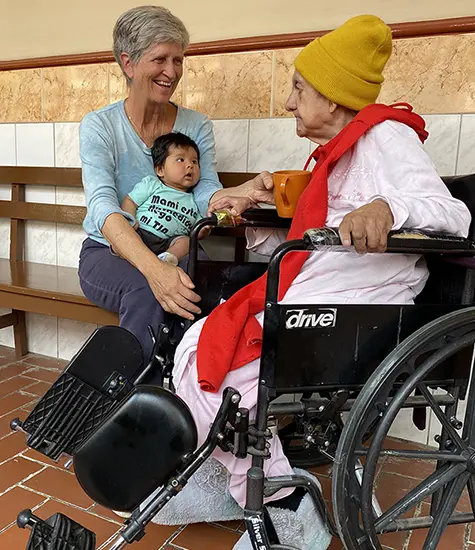




Thanks for sharing Salim‘s story, Rich. May God help us to help you as we remember their needs.